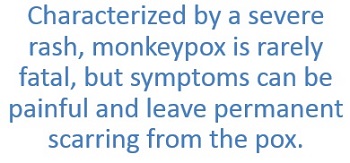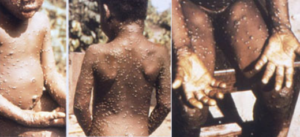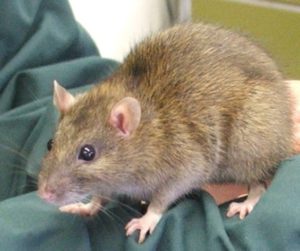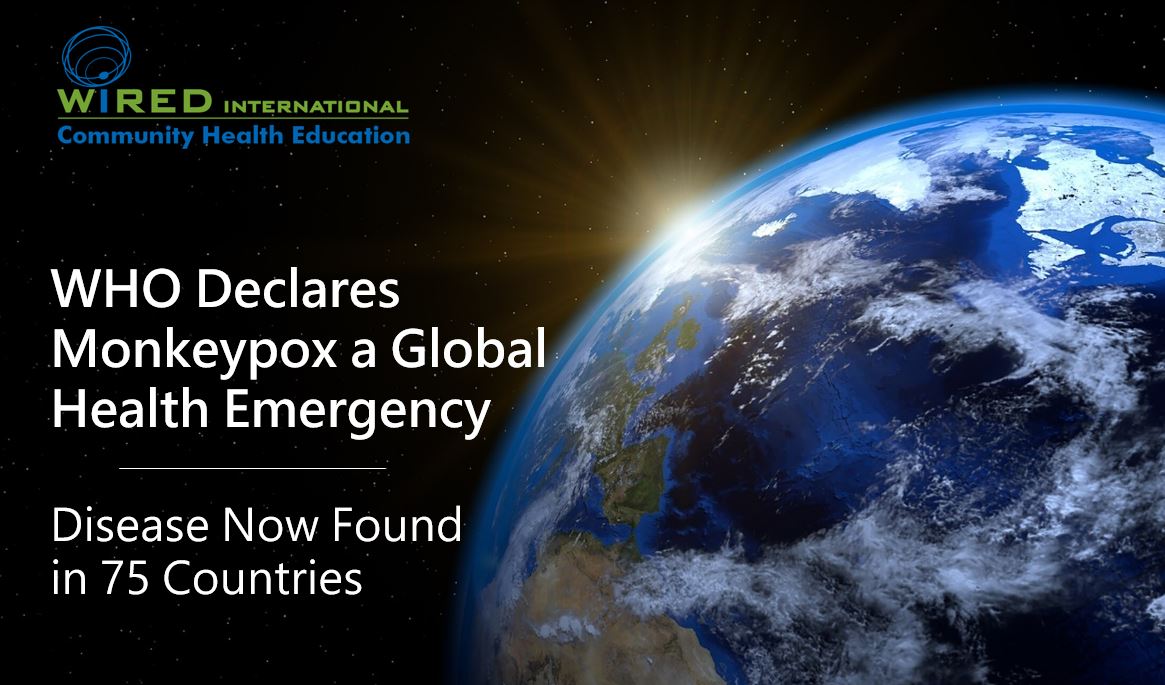By Allison Kozicharow; Edited by Elizabeth Fine
On July 23, 2022, the World Health Organization declared monkeypox a global health emergency, citing more than 16,000 cases worldwide and primarily in men who have sex with men.
 Monkeypox is endemic in West and Central Africa, but the latest cases have been confirmed in countries that don’t normally report monkeypox, including the United States.
Monkeypox is endemic in West and Central Africa, but the latest cases have been confirmed in countries that don’t normally report monkeypox, including the United States.
In May global health agencies began following monkeypox outbreaks. In June WiRED International released a health education module on monkeypox for health professionals and paraprofessionals. The module provides a general introduction to monkeypox, its emergence, its mode of transmission and its signs and symptoms. The module demonstrates how to clinically identify monkeypox and learn about its prevention and control.
 It is WiRED’s policy to react swiftly to new global health emergencies with accurate, reliable information that discusses critical elements of emerging diseases. In the past we have created and released modules in early response to the advent of Ebola, Zika, COVID-19 and other diseases with regional and global impact. Indeed, getting reliable, peer-reviewed information into the hands of ordinary people and health professionals is a vital part of our mission.
It is WiRED’s policy to react swiftly to new global health emergencies with accurate, reliable information that discusses critical elements of emerging diseases. In the past we have created and released modules in early response to the advent of Ebola, Zika, COVID-19 and other diseases with regional and global impact. Indeed, getting reliable, peer-reviewed information into the hands of ordinary people and health professionals is a vital part of our mission.
WiRED will continue to report on monkeypox as new information arises.
What is Monkeypox?
Monkeypox is a viral zoonotic infectious disease caused by a virus called Orthopoxvirus. Monkeypox is transmitted to humans by coming in contact with sores, scabs and oral fluids from infected people or from infected animals, most commonly rodents.
 Characterized by a severe rash, monkeypox is rarely fatal, but symptoms can be painful and leave permanent scarring from the pox. However, the disease can cause serious illness or death in children under age eight, people with weakened immune systems or a history of eczema and women who are pregnant or breastfeeding.
Characterized by a severe rash, monkeypox is rarely fatal, but symptoms can be painful and leave permanent scarring from the pox. However, the disease can cause serious illness or death in children under age eight, people with weakened immune systems or a history of eczema and women who are pregnant or breastfeeding.
Read more:
World Health Organization
Centers for Disease Control and Prevention


